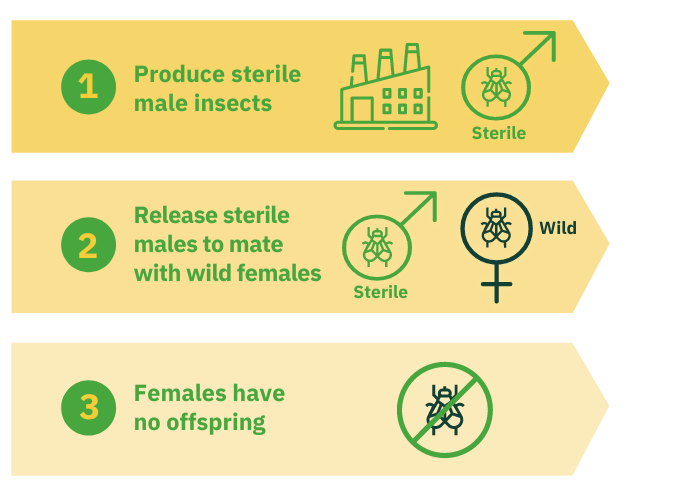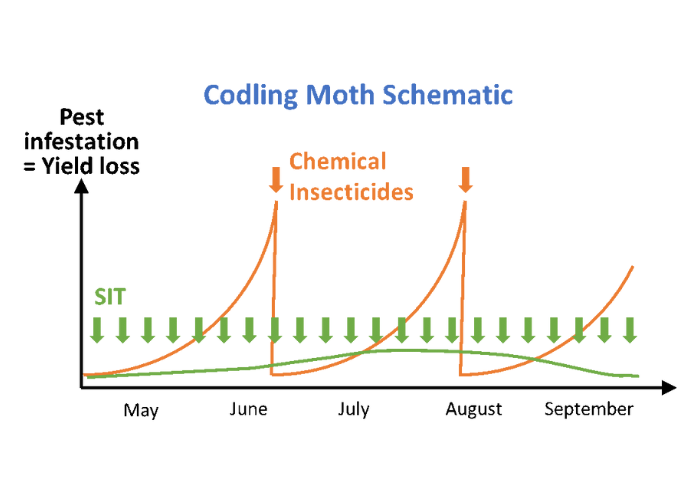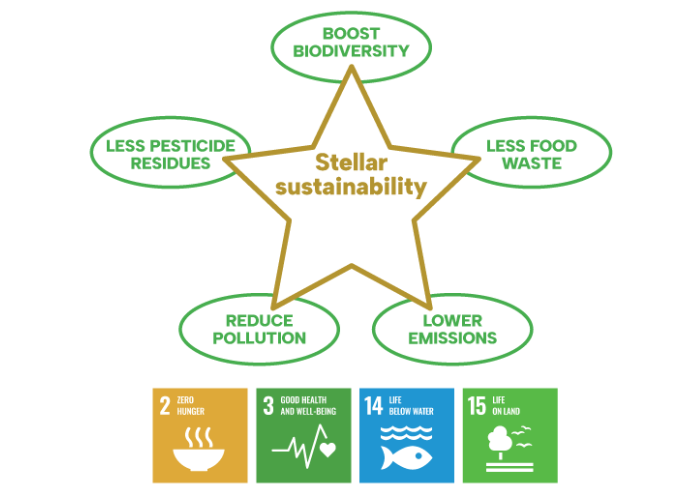Sterile insect technique (SIT)
SIT is a platform technology for the control of insect pests that has been deployed effectively for over 60 years.
Sterile males of the pest species are produced and then released on your farm, where they mate with wild females. These females have no offspring, so the target pest is suppressed.
BigSis solutions are based on a proprietary, reinvented approach to producing sterile male insects, using robotics and artificial intelligence.



